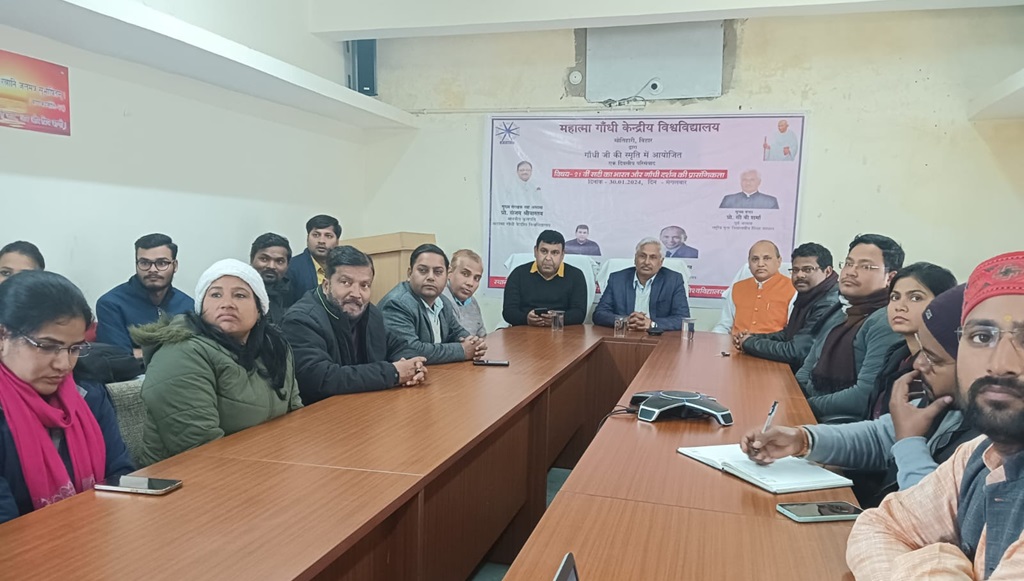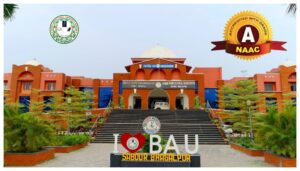Bihar: Mahatma Gandhi’s Legacy Explored in Enlightening Dialogue at Central University

Motihari – A one-day dialogue was organized at Mahatma Gandhi Central University on the occasion of Mahatma Gandhi’s death anniversary on Tuesday, January 30. The former president of the National Open University, Prof. Chandra Bhushan Sharma, was the main speaker, delivering a lecture on the “Relevance of 21st Century India and Gandhian Philosophy.” During the dialogue, he addressed the participants, stating that Mahatma Gandhi not only guided Indian society in a new direction but also globally validated truth and non-violence in contemporary contexts.
Prof. Sharma emphasized that Gandhi, through Satyagraha, influenced those opposing Gandhian ideology. He asserted that although Gandhi served as a leader in his era, his vision and philosophy would remain relevant globally. Gandhi’s philosophy, rooted in values such as love, altruism, compassion, justice, humanity, and brotherhood, develops in tandem with universal principles of truth and non-violence. These values will perpetually remain relevant to any society.
The Vice-Chancellor of the university, Prof. Sanjay Shrivastava, highlighted Gandhi’s pivotal role in India’s history, especially his initiation of the Champaran Satyagraha. He stressed that Gandhi’s struggle in Champaran laid the foundation for his acceptance as the most admirable leader in Indian politics. The Champaran Satyagraha became globally renowned, marking the beginning of democratic victories.
Prof. Shrivastava further expressed gratitude for Gandhi’s contribution, emphasizing that Gandhian principles of Satyagraha and non-violence are essential for maintaining democracy. He stated that Gandhi’s philosophy is indispensable for upholding democratic values and principles globally. Where democracy exists, the relevance of truth and non-violence, as advocated by Gandhi, will persist.
In conclusion, Prof. Ashish Srivastava, the head of the education department, thanked the participants and urged them not just to discuss Gandhi’s philosophy but to incorporate it into their lives. He emphasized that understanding the relevance of Gandhi’s vision requires its practical application in daily behavior. The successful coordination of the dialogue was acknowledged, with Dr. Shyam Nandan from the Hindi department and Dr. Vishwajeet Barman from the Sanskrit department being recognized for their contributions.







